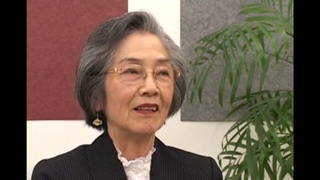Interviews
Initial impact on life at camp
I think it’s according to the age that people have these different experiences because of what you know – your consciousness of what was happening to you and what you were missing out in “the outs”, the outside life. But, you know, at my age – 7 years old and so forth – you just continued playing with your friends and going to school. The difference for me was that everybody looked like me and then of course…
I think for me the biggest, biggest, harshest change was having to eat in the mess hall because the dinner table in our home was the center of life, our social life, was to eat at this big round table with all of us eating together. And that changed drastically when we went to camp because we ate like we were in the Army.
And I remember longing for, like, Thanksgiving or Christmas because we didn’t have that anymore. But I remember that feeling of emptiness because that had changed. I knew something had changed in our life, but I didn’t know why. And then of course when my father came back, and he was totally changed, it was like my world had turned upside-down.
Date: December 27, 2005
Location: California, US
Interviewer: John Esaki
Contributed by: Watase Media Arts Center, Japanese American National Museum








